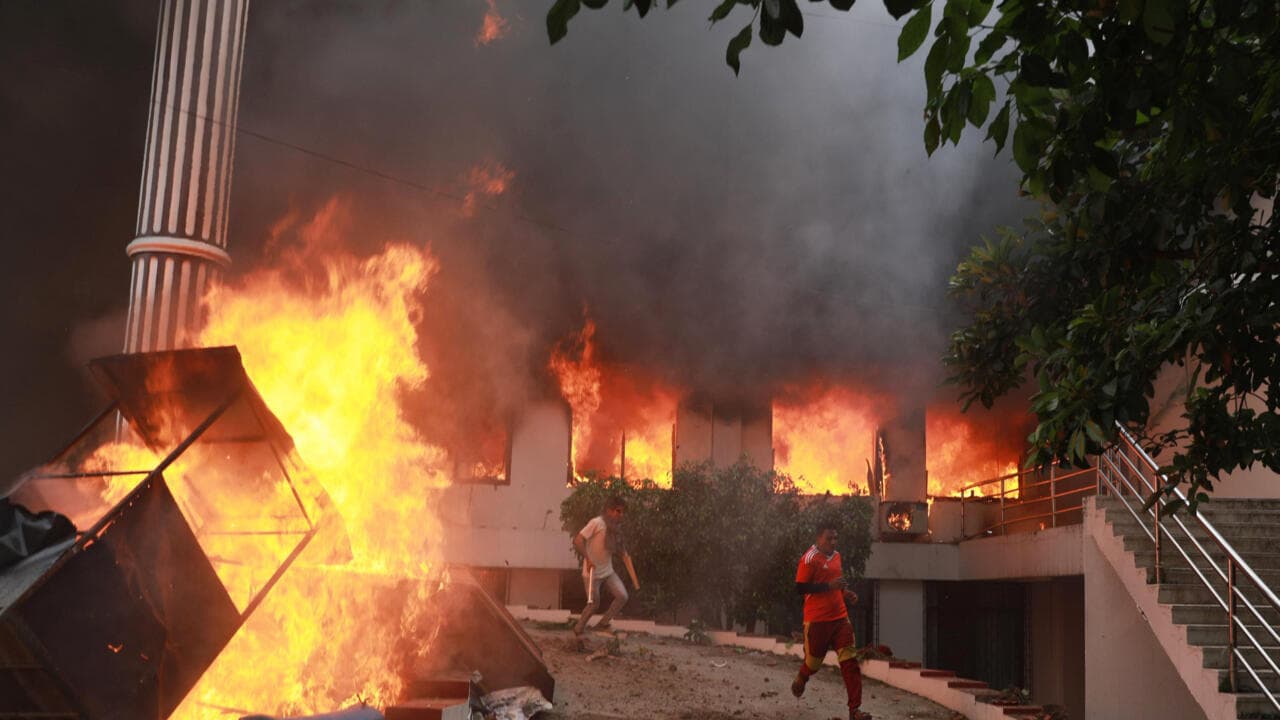Nepali youth protesters set fire to parliament on Tuesday as the veteran prime minister gave in to furious crowds' calls to quit, a day after one of the deadliest crackdowns in years in which at least 19 people were killed.
The protests, which began on Monday with demands that the government lift a ban on social media and tackle corruption, reignited despite the apps going back online.
Demonstrators on Tuesday attacked and set fire to KP Sharma Oli's house, the 73-year-old, four-time prime minister and leader of the Communist Party.
Shortly after, chanting protesters – some wielding assault rifles, according to an AFP reporter at the site – gathered outside main government buildings.
Plumes of smoke also covered Nepal's parliament as demonstrators set the building ablaze.
"Hundreds have breached the parliament area and torched the main building," Ekram Giri, spokesman for the Parliament Secretariat, told AFP.
The United Nations rights chief voiced alarm at the escalating violence.
UN High Commissioner for Human Rights Volker Turk is"appalled by the escalating violence in Nepal", and insists that"dialogue is the best and only way to address the concerns of the Nepalese people", he said in a statement.
Protesters, mostly young men, were seen waving the country's national flag as they dodged water cannons deployed by the security forces.
Other demonstrators targeted the properties of politicians and government buildings.
Kathmandu's airport remains open, but some flights were cancelled after smoke from fires affected visibility, airport spokesman Rinji Sherpa said.
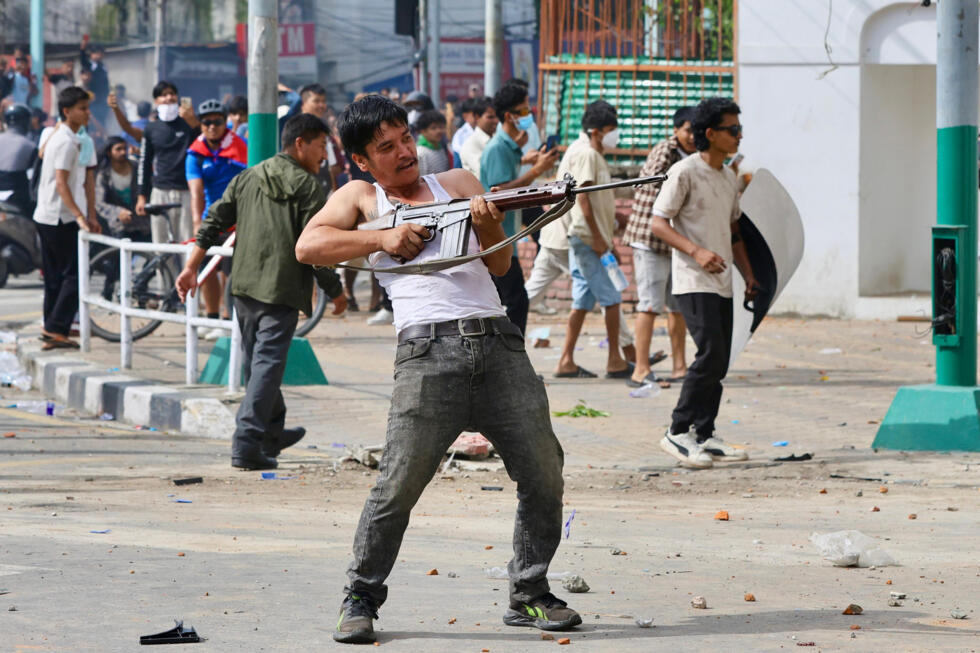
"I have resigned from the post of prime minister with effect from today... in order to take further steps towards a political solution and resolution of the problems," Oli said Tuesday in a statement.
His political career stretched nearly six decades, a period that saw a decade-long civil war, with Nepal abolishing its absolute monarchy in 2008 to become a republic.
First elected as prime minister in 2015, he was re-elected in 2018, reappointed briefly in 2021, and then took power in 2024 after his Communist Party forged a coalition government with the centre-left Nepali Congress in the often-volatile parliament.
His resignation followed that of three other ministers, and came despite the government repealing the ban.
Bringing social media back online"was among the Gen Z's demands", Minister for Communication Prithvi Subba Gurung told AFP, referring to young people aged largely in their 20s.
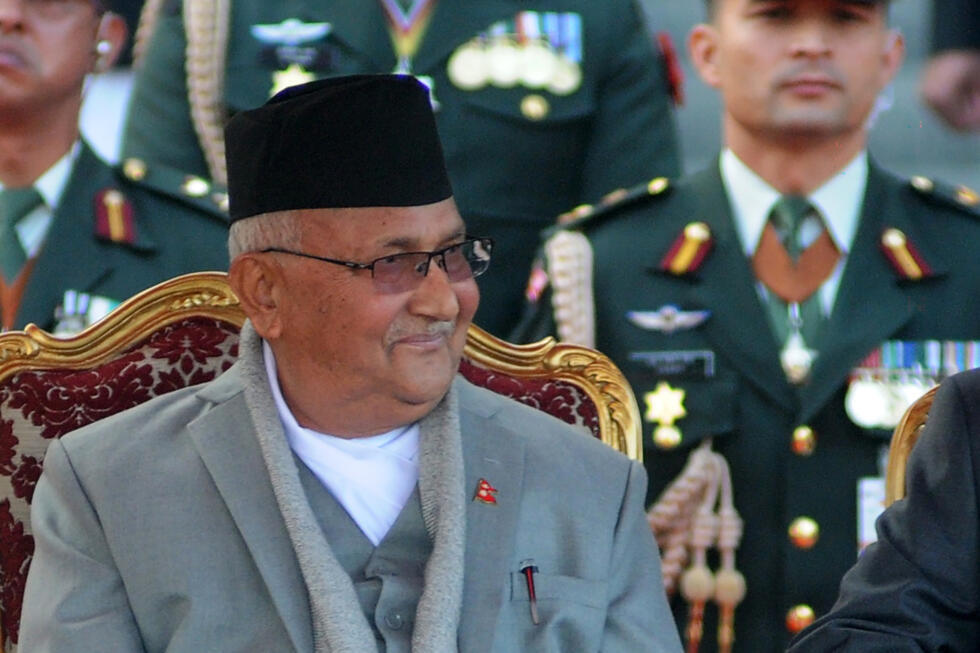
The ban fed into existing anger at the government in a country with a youth bulge.
People aged 15-40 make up nearly 43 percent of the population, according to government statistics – while unemployment hovers around 10 percent and GDP per capita is just $1,447, according to the World Bank.
Live ammunition
Slogans demanding accountability from the authorities have been a feature at the protests.
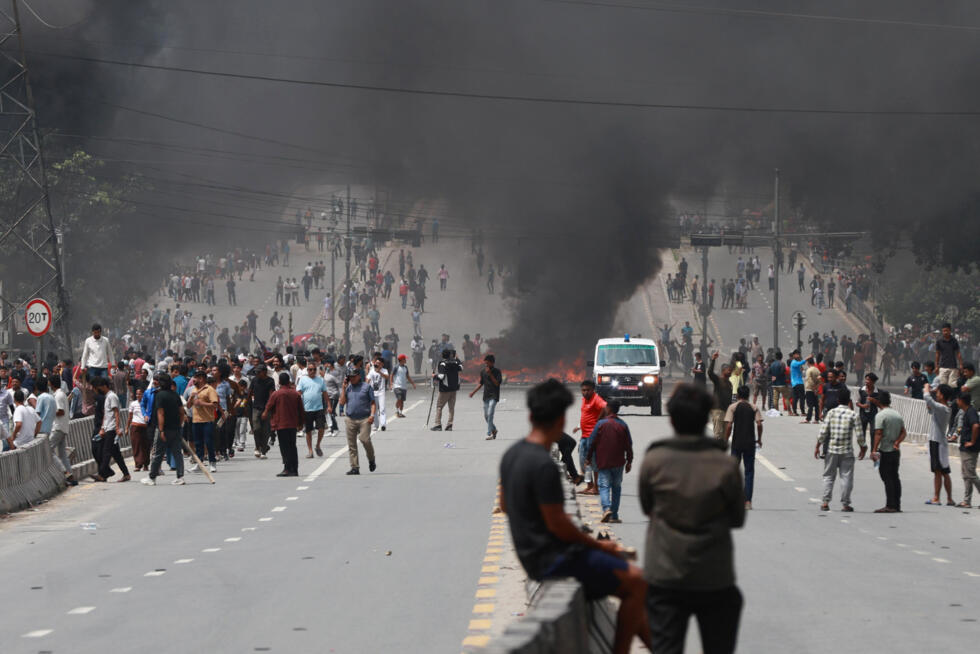
"Nearly 20 people were murdered by the state – that shows the scale of police brutality," said 23-year-old student Yujan Rajbhandari.
Several social media sites – including Facebook, YouTube and X – were blocked on Friday in the Himalayan nation of 30 million people, after the government cut access to 26 unregistered platforms.
Amnesty International said live ammunition had been used against protesters on Monday, and the United Nations demanded a swift and transparent probe.
Since Friday, videos contrasting the struggles of ordinary Nepalis with the children of politicians flaunting luxury goods and expensive vacations have gone viral on TikTok, which was not blocked.
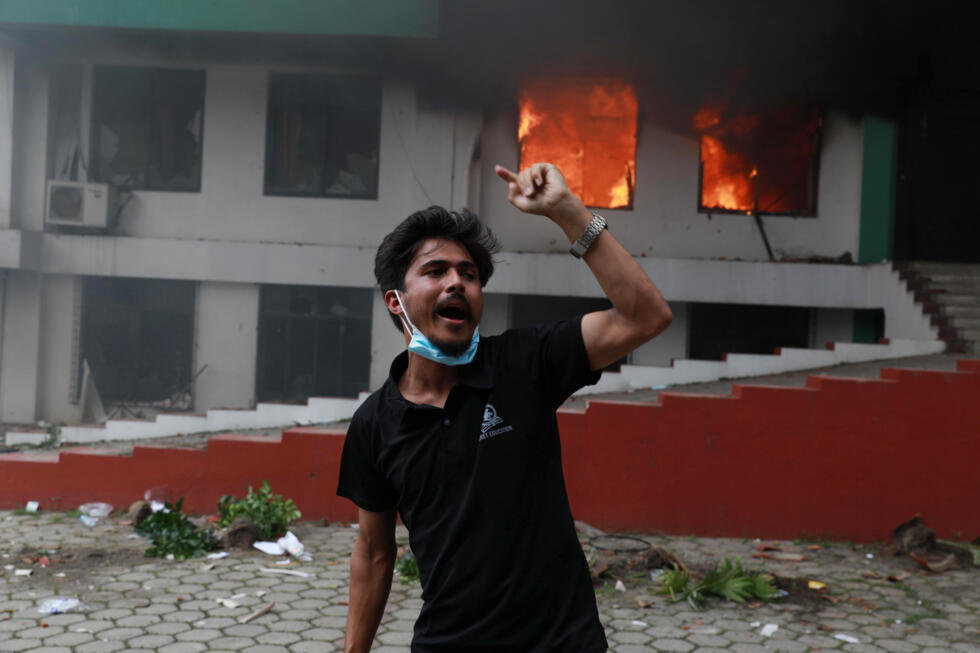
Popular platforms such as Instagram have millions of users in Nepal who rely on them for entertainment, news and business. Others rely on the apps for messaging.
"This isn't just about social media – it's about trust, corruption, and a generation that refuses to stay silent," the Kathmandu Post newspaper wrote.
"Gen Z grew up with smartphones, global trends, and promises of a federal, prosperous Nepal," it added.
"For them, digital freedom is personal freedom. Cutting off access feels like silencing an entire generation."
It lifted a nine-month ban on TikTok last year after the platform agreed to comply with Nepali regulations.

